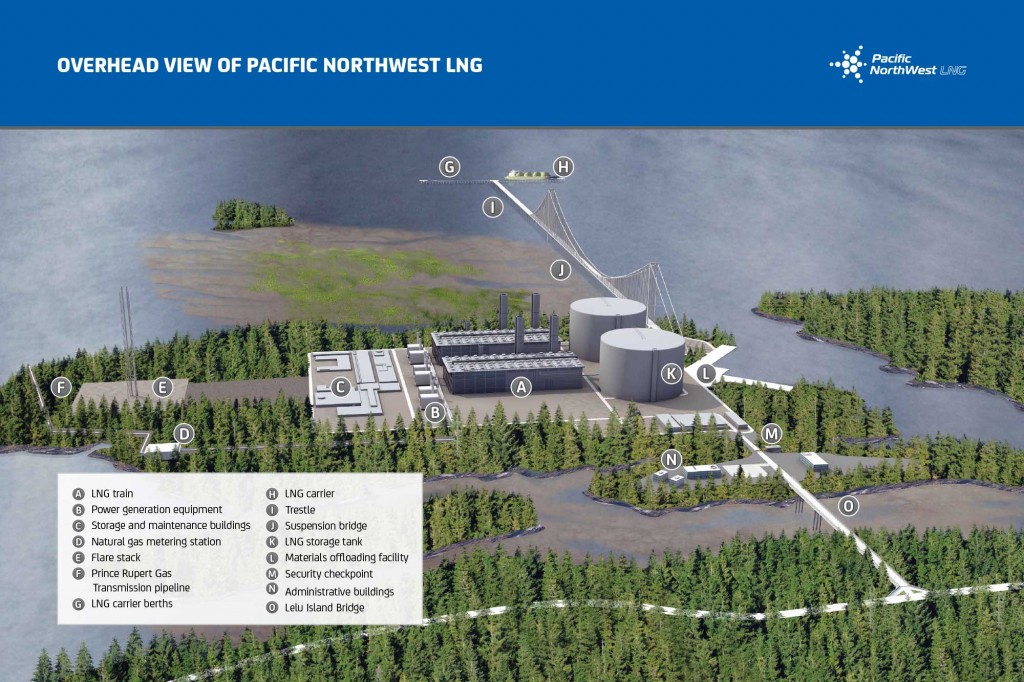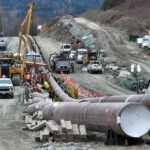Pacific NorthWest LNG will be exempt from tax hikes for 25 years
British Columbian Finance Minister Mike de Jong released the details of the province’s deal with Petronas-led Pacific NorthWest LNG (PNW LNG) in order to attract a Final Investment Decision (FID) on the company’s liquefied natural gas (LNG) project. B.C. will compensate PNW LNG for any raises on the LNG industry for a 25-year period after the plant begins shipments, reports CBC.
While explaining the $36 billion deal, de Jong said that PNW LNG will be compensated if taxes on the industry are raised, natural gas tax credits are reduced or new carbon taxes targeting the LNG sector are imposed, but the agreement will not protect the company from increases in provincial sales and corporate taxes.
“It provides a measure of stability that says to them, ‘here are the rules of the game that will govern this industrial activity within this jurisdiction for the term of the agreement’ and they can bank on that and know those are not likely to change,” said de Jong. The finance minister went on to say that the project is expected to contribute $9 billion in provincial taxes in its first decade and create up to 4,500 jobs.
More challenges remain
Last month, PNW LNG announced its conditional FID, saying it would move forward if it received approval from the Legislative Assembly of B.C., and a positive regulatory decision from the Government of Canada.
Despite the group’s decision to progress with the project, the British Columbian First Nations group, the Lax Kw’alaams, voted unanimously against allowing a ship terminal for the project to be built near the community. The First Nation group turned down Pacific NorthWest’s $1 billion offer, saying they were concerned over the environmental impacts of the project.
A second First Nations group, the Gitga’at, has now joined the Lax Kw’alaams in protesting the construction of the LNG terminal, reports The Vancouver Sun. The Gitga’at First Nation is seeking a judicial review from the B.C. Supreme Court over a B.C. Environmental Assessment Office decision they say does not recognize the Gitga’at as being one of the First Nations entitled to full consultation on the project.
When asked if the project could proceed without 100% approval from First Nations groups, de Jong did not answer directly, but said, “By and large, any rationale analysis, reasonable analysis, of what has taken place with respect to this project and the development of the industry in general, would conclude this represented a positive example of how people can work together and how, done properly, benefit can accrue to all in an equitable way.”








